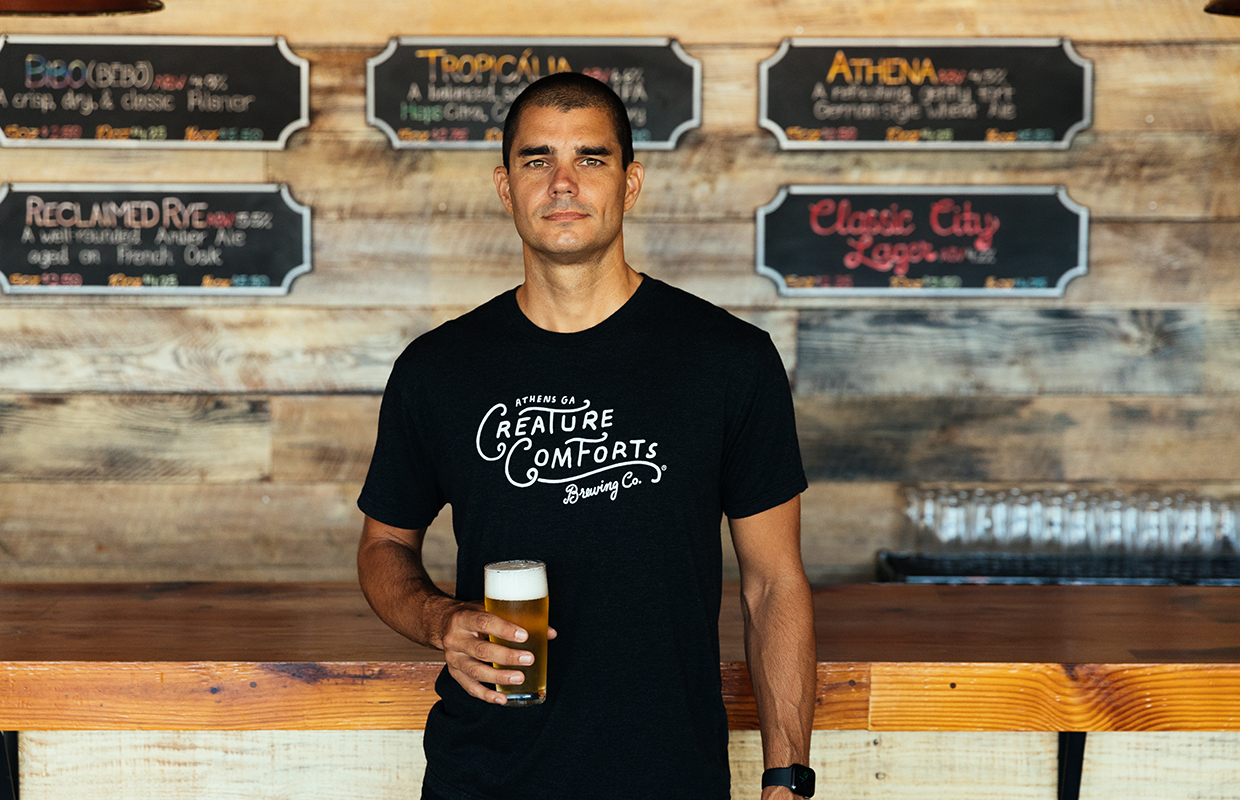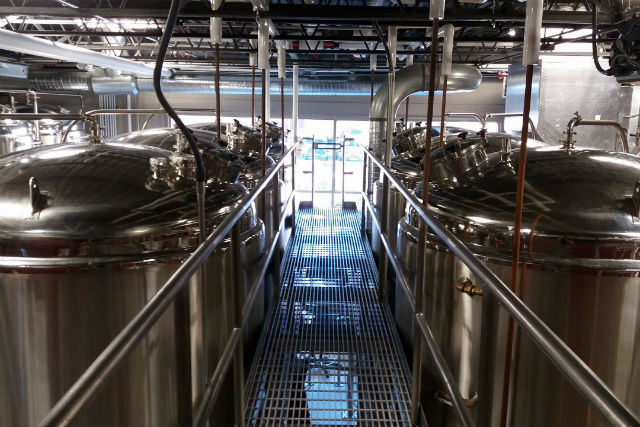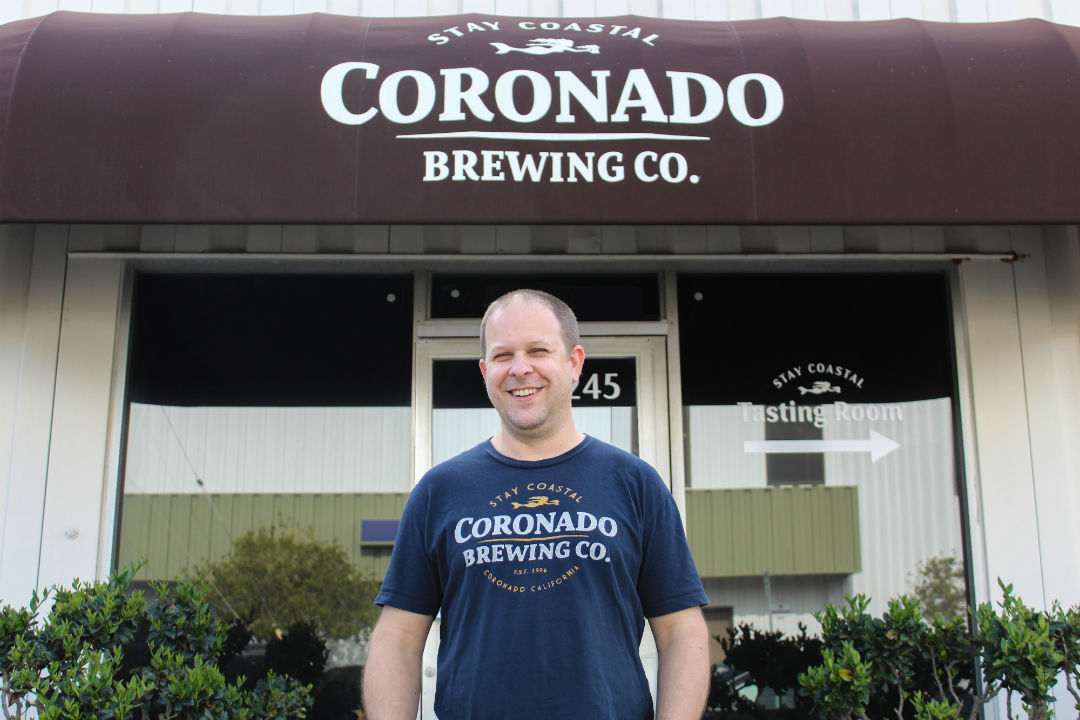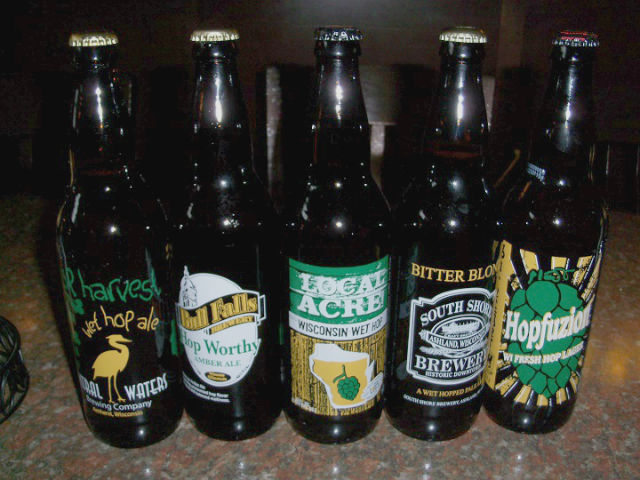
Every 100-year brewery was seven years old once. That was the quip Creature Comforts CEO Chris Herron said with a smile when asked how the Athens, Georgia-based brewery has grown to even possibly think of the future of the brand in such terms.
“For me, that’s one of the biggest changes from early on to now,” he told Brewer. “You have to be so much more intentional as you grow. You have this many lives and hearts beating within an organization now.
“In the early days you kind of all just knew each other, and there’s a sort of sense that, ‘Okay, we all like this, we want that,’ and that changes a lot when you get bigger. We really want to build a company that is as incredible and that is as good of a representation of the quality of beer that’s put out. Our brewers make absolutely world-class beer and we want to make sure that it’s a world-class company as well.”
Seeing growth through a 2020 that was troubling for many, Creature Comforts is reported as the 48th-largest American craft brewery in the country. All of the production has stayed in Georgia up until this point but 2021 has begun with a launch into new states and a serendipitous connection finds the brewery hoping to open a new taproom all the way across the country by the end of the year.
Yet all this growth has been controlled and intentional. Early learnings have made Herron and the Creature Comforts team finally take a look internally to make the company a brand that can last and sustain. That’s why focusing on getting B Corp certified mattered and recently reaching that status meant a lot.
“Initially, we started with the idea that we wanted to make incredible beer and we wanted to have a positive impact on our community,” Herron said. “We knew that we wanted to be a good neighbor and wanted to be a good business. I think where it’s kind of moved to is we still want those same things. We want to have a material impact on our community. But as you grow — and we’ve gone from five employees to 100-plus employees — it’s really about, how do you define what building a great company is like?
Herron said 2017 was probably the most stressful year within the organization.
“We were busting at the seams of Snow Tire (its first location) while also trying to build this sort of world-class, large facility (Southern Mills),” he said, noting they were brewing 24 hours a day, five days a week, and packaging at least four days a week for 14 hours a day in a pretty small footprint. “That was probably I think, the most trying time, organizationally, just we were all working a lot. And then when Southern Mill opened, it definitely gave us a nice moment of breathing room where we were able to kind of really focus back on just the business. We really kind of turned and looked very introspectively at creating purpose, mission, and value statements, and started to think about what kind of company we want to be.
“The first three years were just chaos trying to find ways to keep up, and then we’ve been on this journey for the last two or three years building up a blueprint, a foundation for the company that we hope to build for the next, you know, 100 years, or whatever it is.”
Where Creature is different now is that it has dug into governance, environment, community, its people, and the community impact.
READ MORE: The Steps Creature Comforts Takes for its Crowd-Sourced Philanthropy
“It starts to take a more holistic look,” he said, adding they found that the B Corp values were a checklist they wanted to be mindful of. “It helped us define what being a great company will look like for us.
“Of course, we want the beer to be incredible. But in the crowded space that we have today, and with where the world is moving — and for good reason — people are interested in making sure that the companies behind the products are great businesses. That there’s good nature in those entities. B Corp has really given us a framework for trying to say that. We looked at a lot of our favorite companies and a number of them were using that certification to help them identify it. Nothing guarantees anything, but it lets us know that we’re moving in the right direction, for sure. And we’re super proud of that.”
But why seek this? At some point, Herron said, you have to ask, ‘Why are we growing?’
“Like, what’s the purpose of growth,” he recalled in late 2017. “That was a big pause moment and we sort of had the opportunity to go start expanding states, if we wanted to. We could produce more, but why are we doing it? That really is when we started to lean into our purpose and our values. We started getting this feeling internally that we want to build a great company. And if we build a great company, then that’s a reason to grow.
“If we’re making our beer more sustainably than other breweries we compete with … if we invest in our communities more significantly, and more effectively, and if we can create policies and programs to allow this to be a better place to work than the people we compete with, then we can feel really good about growing our business. That can be motivation for going out and finding growth because we are a competitive-natured group.”
Serendipitous is becoming the hallmark of the brand.
Creature Comforts was the brainchild of Adam Beauchamp, David Stein, and Derek Imes as early as 2012. Meanwhile, Herron was working in Connecticut but looking to get back to Georgia by opening a brewery in Atlanta. He hired a consultant out of Canada to help develop a brewing strategy while the Creature team had been working with the same consultant to develop their business side. After being introduced and having a two-hour phone call, Creature brought Herron into the fold about two months before opening in April 2014 to be the CEO.
From the beginning, Herron said they were more focused on building brands more than beers.
“I think that’s probably one kind of big difference between some of us, as an early brewery in Georgia,” he said. The brewery opened in its original location with a 30-barrel system, meaning it had to be a beer that would sell in distribution. At the time of opening, Georgia laws prohibited the brewery to allow direct sales, like tasting room draft, or to-go sales.
“We were really focused on a couple of core items,” Herron said. “Unfortunately, for a lot of us who started in around that time, most of us don’t own the majority of our businesses. We’re investor-owned because we didn’t have personal cash to the extent necessary to open a 30-barrel brewhouse.”
In the brewery’s first year, it was a struggle, Herron said. Because of the volume being produced, the brewery had to add Atlanta as a market six months in just to sell and unload kegs, “more out of necessity than desire,” he said. “We were trying to just be an Athens brewery initially, for as long as we could, and there just wasn’t enough volume in the market for it to make sense.
“I had a good bit of money on my personal credit cards. Adam and David had maxed out their’s, making sure the payroll goes through.”
About a year after opening, getting Tropicália — the brewery’s flagship IPA — in a can in the Atlanta market changed everything for Creature.
“That was when all of a sudden the business took a turn and we were able to start to envision a future where we would be profitable,” Herron said.
Tropicália represents two main forks for the brewery’s branding. The majorly produced cores and seasonals anchor the ship (with Tropicália being the No. 1 craft beer SKU in the state) while staying creative (the motto “Crave Curiosity” is still a mantra the company uses and helped inspire the name and imaging) is still important as well for connecting with the craft beer community.
“That distinction has helped us, I think, be able to maintain a good base with the craft beer consumer — that sort of diehard fan — while allowing us to recognize and allow a brand like Tropicália to spread its wings and become a more mainstay in a lot of homes and fridges on a regular basis,” Herron said.
In Spring 2021 the brewery announced its first foray outside of Georgia with the addition of the Charleston/Hilton Head, South Carolina market.
“We’ve been in the Savannah/coastal area of Georgia. So this was a pretty natural move for us,” Herron said. “We’re taking our time, we’re going to make sure that we learn a lot about it. We want to make sure that we’re good citizens of the new markets that we go into. But mainly, we wanted to make sure that we felt comfortable that we could take care of the volume requests coming through here in Georgia before we started to expand outside of it.
“We’re still growing pretty significantly in Georgia, but we felt good about our capacity, both as a business and in terms of physical production capacity, to be able to start exploring how our brand might live outside of Georgia. Which is super exciting. We were never planning to only be a Georgia brewery, we just, we’ve never been really sort of volume growth/expansion driven. It’s just never been a big concern of ours.”
Rewind to the filming of the 2019 blockbuster movie “Avengers: Endgame” in Georgia and serendipity struck again as director Joe Russo and his team happened across Tropicália and other Creature brands. The brewery’s cans were used in the movie as a bribe to get Thor back into the fight and actor Chris Hemsworth was seen sporting a Tropicália short in the film as well.
That started a relationship with Russo and he and a group of partners are helping bring the brand to Los Angeles with a 15-barrel brewhouse and taproom, which has hopes of opening by the end of 2021.
“The chance to work with Joe, I was super excited about,” Herron said. “Those kinds of opportunities don’t come often in life, and a lot of people know Joe as a director, which he certainly is, but he’s also just an incredible human. He’s a great mentor to me through this. He has really helped us to think more broadly, I think about what’s possible for a brand and for us. His view of the world is a little different than mine. And, he’s got a ton of experience, both as a brand builder, as a marketer, and entrepreneur.
“He’s just a really creative person and has been an awesome inspiration to us. Having the chance to pick up the phone and hear from him in terms of his ideas, or thoughts around branding strategies, or growth strategies, and building awareness and storytelling behind the brand is just something that I would have probably always just looked back on and wondered what could have been.
“All that kind of compiled to a situation where you kind of just sit there and look at it on a sheet and you’re like, Alright, I guess we’re going to LA. I guess … this is gonna happen.”
Herron said some staff have raised their hands and said they’re interested in making the move out to LA, but it won’t be a huge production and will instead focus on its own taproom and connecting with the Southern California beer scene.
“There’s different ideas and philosophies of doing beer that exist out there to what we’re doing,” Herron said. “We love the idea of being able to take some of our employees that we think really embody the values and the sort of spirit of Creature and to have them out there to help connect with the public and make that connection.
“Ideally Creature Comforts LA has kind of the same heart as Creature Comforts Athens, but it’s going to be dressed a little different and feel a little different. And we want it to be a unique expression of Creature.”
Photos courtesy Creature Comforts




Be the first to comment